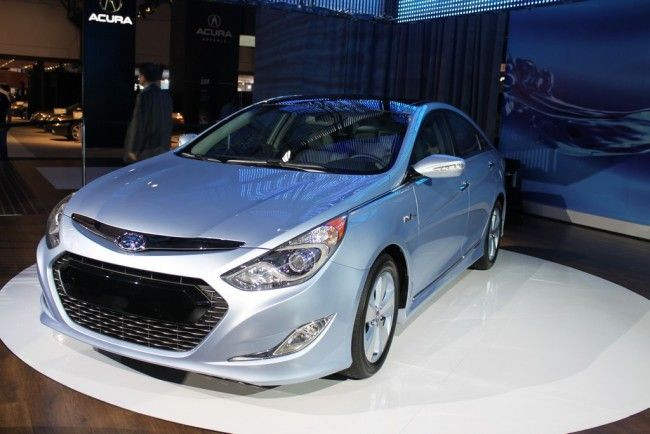Hyundai Tops J.D. Power Retention Ranks by Building Brand Loyalty Over Past Decade

Hyundai said Tuesday that it was proud to rank highest among automotive brands in the J.D. Power and Associates 2012 Consumer Retention Study, attributing the honor to an expanding model lineup and better perceptions of Hyundai's quality and appeal across the board in recent years.
The study, released by J.D. Power and Associates last week, found that Hyundai ranked highest among 33 automotive brands and improved its retention rate in the past two years to 64 percent.
We are proud that Hyundai owners show their brand loyalty by choosing to buy another Hyundai vehicle over 60 percent of the time, said Dave Zuchowski, executive vice president of national sales for Hyundai Motor America, in a statement Tuesday.
Once they experience the styling, comfort and value of Hyundai vehicles, it's no surprise that they elect to stick with the Hyundai brand. We are thrilled that our vehicles and our dealers are earning the respect and loyalty of our customers.
J.D. Power and Associates said Hyundai's increase was mostly due to model loyalty to the Elantra and Sonata car models. The Sonata ranked fourteenth in 2011 vehicle sales, jumping 14.9 percent from 2010. And overall, Hyundai sales leaped 20 percent last year, while fellow Japanese automakers Honda and Toyota suffered due to the earthquake and tsunami in Japan.
The study also found reasons similar to Hyundai's rationale for the increase in brand retention: it's expanding lineup, including the compact Accent, Elantra Touring and models; the mid-size Azera, crossover Tucson, and Veracruz models; and the luxury Genesis and Equus models.
This was crucial, said Raffi Festekjian, director of automotive product research at J.D. Power and Associates. The study found that 33 percent of new-vehicle owners that switched brands said they did so because their previous brand didn't provide the type of vehicle they wanted.
Many automotive brands are expanding their array of models in an attempt to capture more buyers, but this isn't enough in and of itself, Festekjian said. Manufacturers need to integrate specific attributes and features that delight vehicle owners to maximize their opportunity to both retain customers and [make] conquests from other brands. Manufacturers also need to ensure that owners are satisfied with the quality, residual values and ownership costs of their vehicles.
Ford and Honda follow Hyundai, each having a 60 percent customer retention rate. Jeep had the biggest jump in the rate, rising from 17 percent to 51 percent in 2012, from 34 percent in 2010. And overall, customer retention rose by a percentage point in 2012 to 49 percent. Nineteen of the 33 brands upped their rates.
Several of the brands to watch during the coming year fall under the Chrysler and General Motors company categories. An increase in retention rates for brands like Dodge, Jeep, Chrysler, Buick and GMC could present more arguments for what's widely considered an improving U.S. auto industry.
J.D. Power and Associates' study is based on responses from 117,001 new-vehicle buyers and lessees.
© Copyright IBTimes 2025. All rights reserved.





















